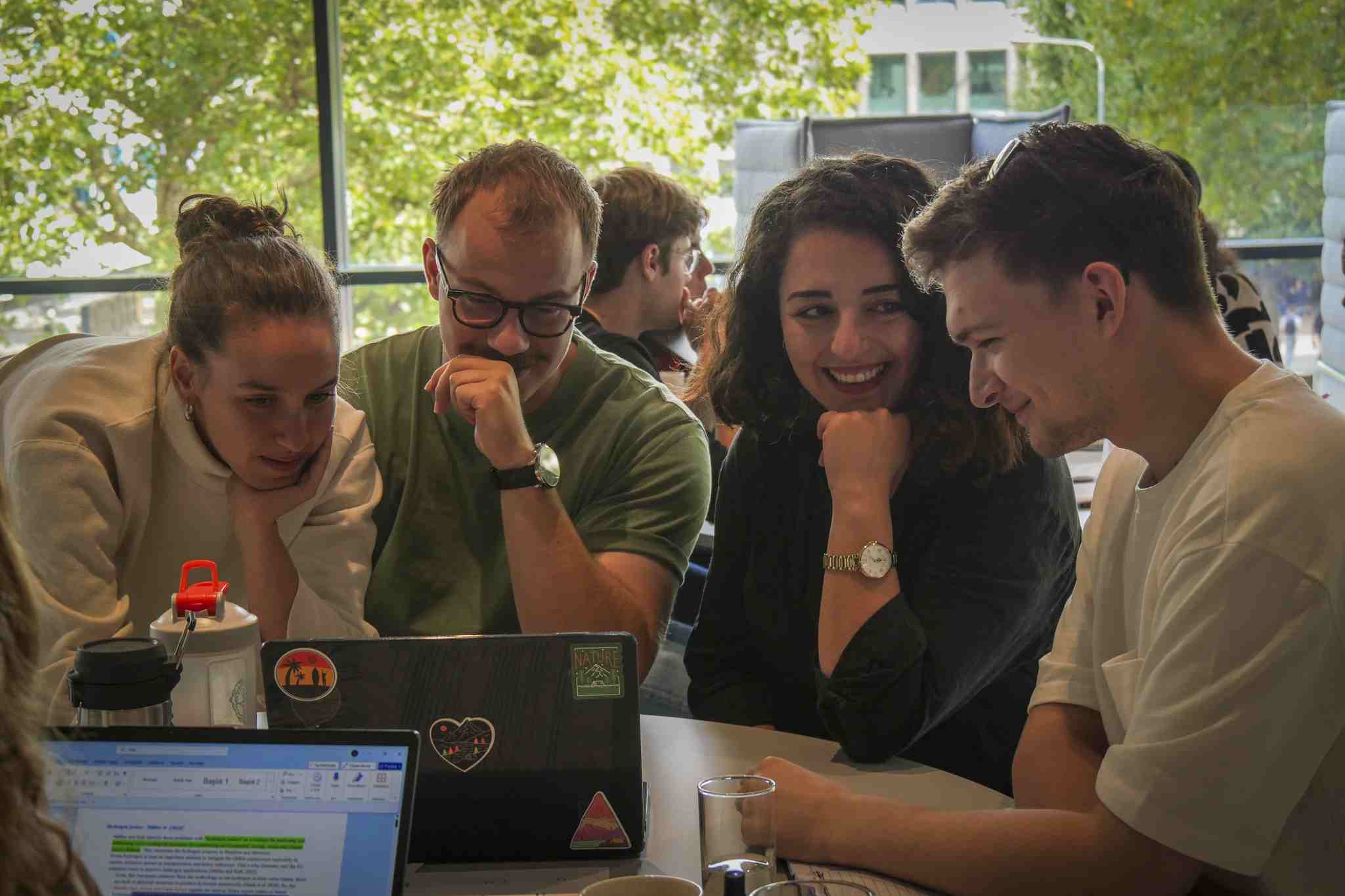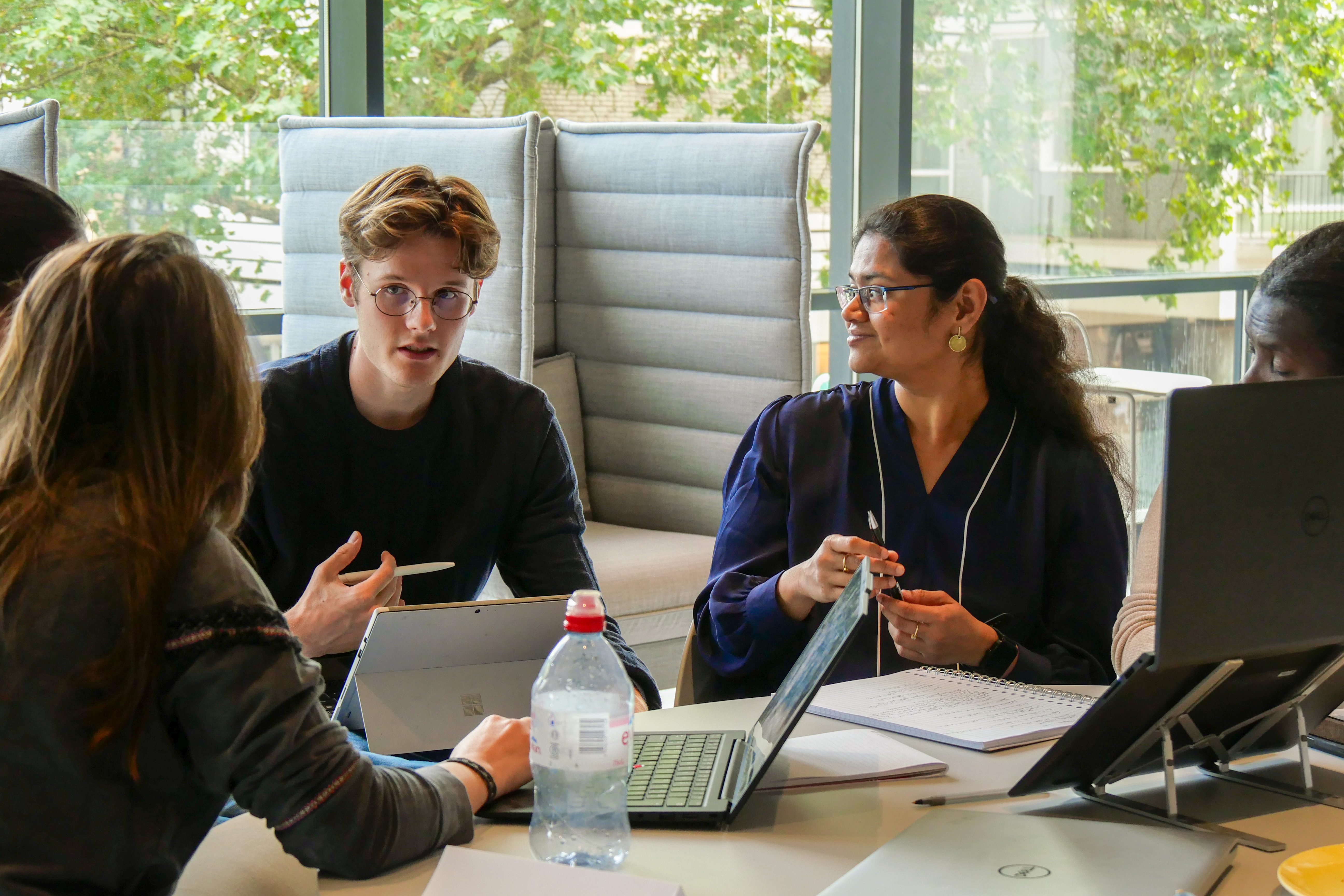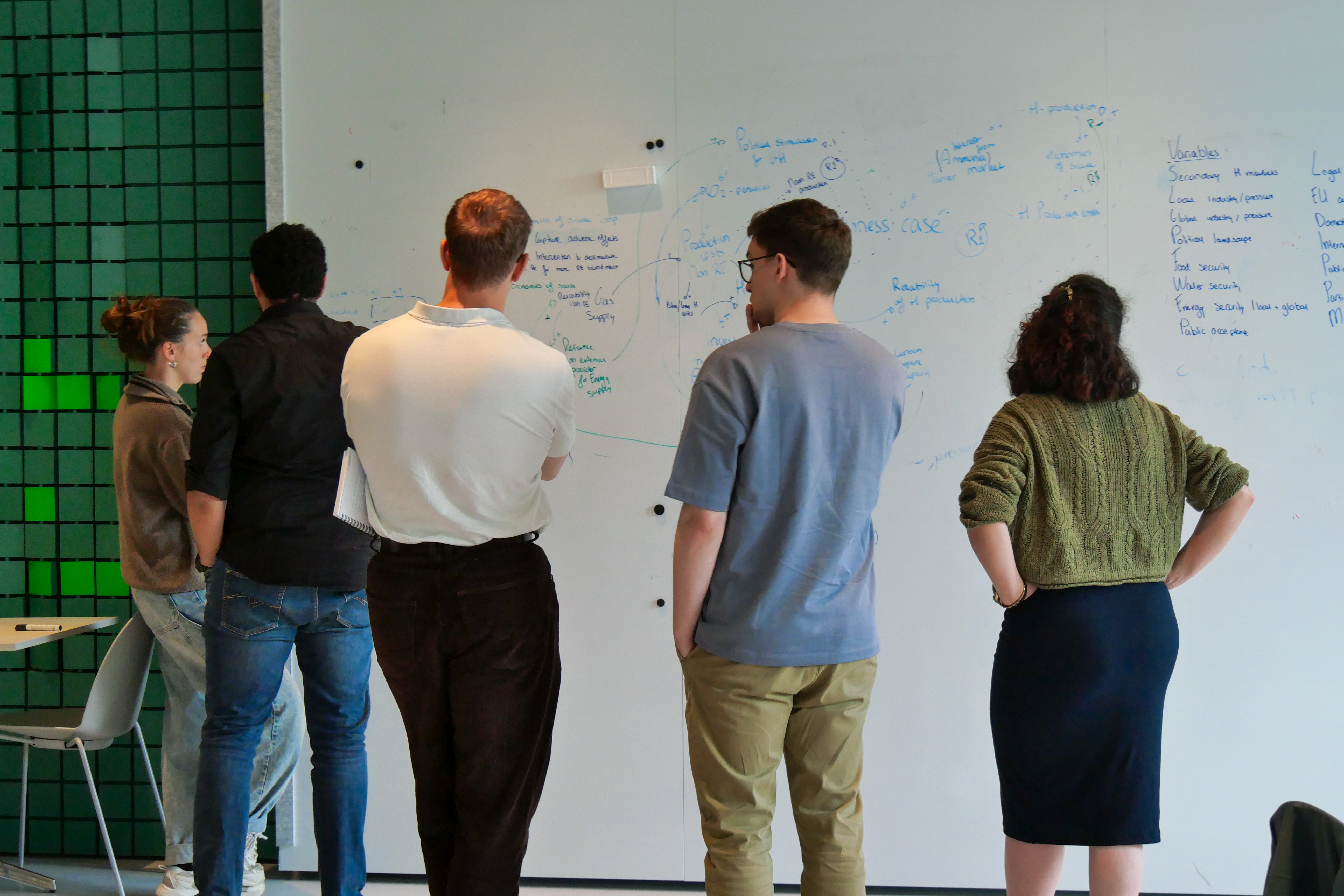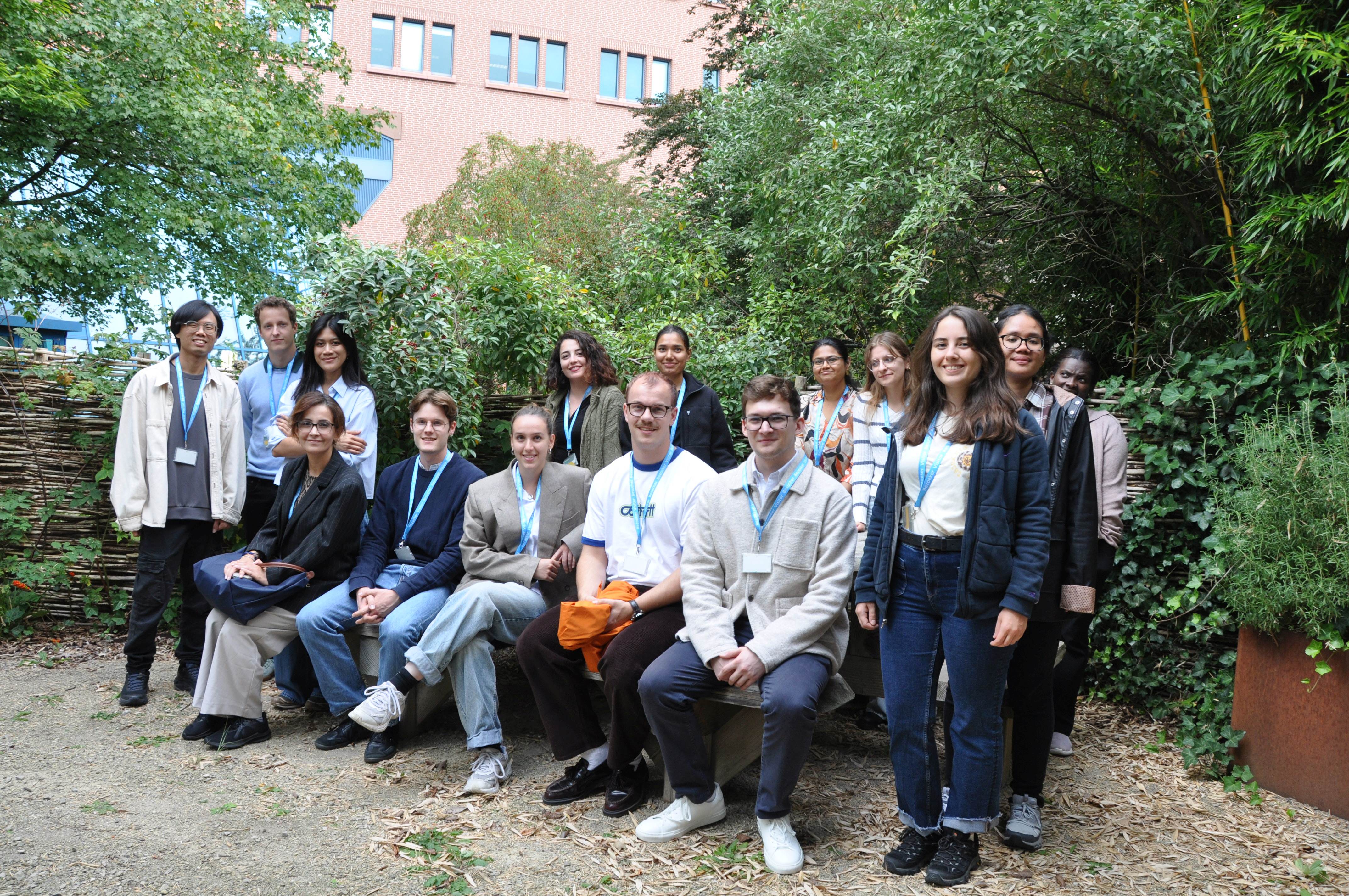Energy Challenge – an interdisciplinary approach
With the pressing impact of emissions contributing to the warming of our planet, there's an urgent call to transition from fossil fuels (oil, gas, and coal) to cleaner, renewable energy sources. Despite this awareness, the pace of this energy transition is not as rapid as needed. What are the challenges?
The future of the hydrogen economy through an interdisciplinary lense
This summer school delves into the future of a hydrogen economy and the social-technical challenges involved. We will explore the delays in implementing the necessary changes in the energy transition from an interdisciplinary perspective.
Tailored towards master students, researchers and professionals within the field, the summer school offers a first-hand exploration into the complexities of energy transition. Moreover, it provides an opportunity to engage with real-time energy challenges.
Apply theory to a real-life case
The course will start with a visit to a company within the hydrogen economy. This visit will inform the participants about the challenges faced by shifting from natural gas towards green gas and hydrogen. Over the following three days, lecturers from various fields—ranging from technical and scientific to energy law, environmental psychology, economics, and spatial science—will inform the participants about the challenge of a hydrogen economy from their perspective.
The participants will work in smaller groups on a certain assignment during the course of the summer school. On the final day, groups of participants will present their work with their peers.
Practical information
|
Dates
|
24 - 28 August 2026 |
|
Location
|
Groningen, the Netherlands
|
|
Level
|
MA/PhD/practitioners |
|
Fee
(including lunches, coffee, bike rental (for 2 days) and closing reception) |
€ 650 including lunches, coffee, closing reception for all participants Travel, accommodation, and dinner are at the participant's own expense. |
|
Academic coordinator
|
Pauline Bakker (MSc), Wubbo Ockels School, University of Groningen |
|
Contact |
energychallenges@rug.nl |
Requirements
Who is this summer school for?
The course is designed for Master students, PhD students and professionals - with a relevant education in science, economics, social science or law - who are interested in energy transition in general and a hydrogen economy in particular.
It is expected that the participants have a sufficient command of the English language to actively participate in the discussions and to present their own work in English.
Course schedule
Learning approach
You will dive into the future of a hydrogen economy and the social-technical challenges involved. You will explore first-hand accounts of the complexities of energy transition and you will get the opportunity to engage with a real-time energy challenge.
The course will start with an introduction to the challenge of energy transition. You will learn about the real-time challenge you and your fellow participants will work on during this summer school. And you will visit one of the stakeholders in the region of Groningen.
In the following three days, you will get an interdisciplinary introduction to the topic of energy transition, with the focus on the role of hydrogen, by lecturers from the different faculties of the University of Groningen. They all introduce the topic from the point of view of their own discipline.
During the course you work together in smaller groups on the challenge. On the final day of the course, each group will present their results.
Learning outcomes
Learning outcomes
After the summer school on Energy Challenges you can:
-
explain and discuss various dilemmas and policy options related to energy transition;
-
apply insights from different academic disciplines on a challenge related to energy transition;
-
reflect on the complex dilemmas in energy transition using the complementary insights from the various disciplines;
-
being able to further define the challenge into a smaller research question
Workload
-
Preparation: 10 hours
-
Lectures: 32 hours
-
Presentation: 14 hours
Upon successful completion of the programme, the Summer School offers a Certificate of Attendance that mentions the workload of 56hours (28 hours corresponds to 1 ECTS). Students can apply for recognition of these credits to the relevant authorities in their home institutions, therefore the final decision on awarding credits is at the discretion of their home institutions. We will be happy to provide any necessary information that might be requested in addition to the certificate of attendance.
Proof of competence
Next to obtaining a certificate for participation, participants have the possibility to gain a digital credential (Proof of Competence) to acknowledge participation and engagement with the content. Learners who have completed a proof of competence can obtain this credential via the EduBadges platform managed by SURF— the cooperative of Dutch education and research institutions. The credential is stored on this platform and contains metadata, making the content, learning outcomes, study load hours and language of instruction of the educational activity clear and transparent (example). The credential is therefore verifiable and can be shared on, for example, a CV or LinkedIn.
Application procedure
How to apply?
To apply, kindly fill out the online application form. Please note that you will be asked to upload the following documents:
-
Curriculum Vitae (max. 2 pages)
-
Motivation letter, clearly stating why you want to join this summer school, what you will bring to the school and what you hope to learn (max. 1 page). If you want to apply for a grant please motivate this in your motivation letter
The deadline for application is 17 April 2026. Participants will be informed of the outcomes on 1 May 2026.







